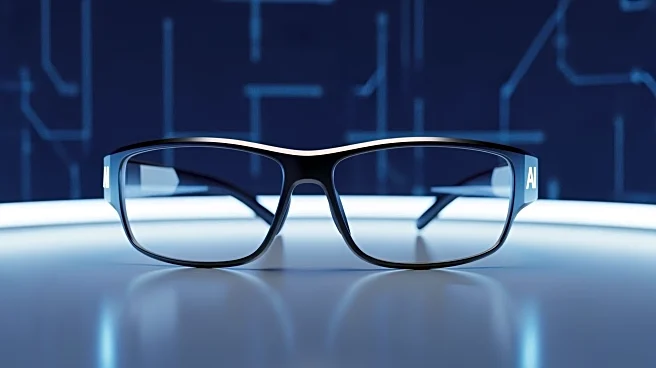What's Happening?
During a recent earnings call, Meta CEO Mark Zuckerberg stated that individuals without AI-enabled glasses might face significant cognitive disadvantages in the future. This remark has sparked widespread
debate about the implications of AI wearables on the job market. The statement comes amid rising sales of smart glasses and substantial losses reported by Reality Labs, Meta's division focused on augmented reality (AR) and virtual reality (VR) technologies. Industry forecasts predict a 39.2% increase in AR/VR shipments in 2025, highlighting the growing demand for these technologies. Zuckerberg's comment has raised concerns about potential hiring and skills gaps, as workers may be expected to invest in AI wearables to remain competitive.
Why It's Important?
The statement by Zuckerberg underscores the potential for AI wearables to create a divide in the workforce, where those equipped with advanced technology may have an edge over others. This could lead to increased inequality, as not all workers may be able to afford such devices. Employers might see productivity gains from AI-enabled tools, but labor advocates warn of privacy and surveillance issues. The debate also touches on the financial burden of acquiring these technologies, which could disproportionately affect lower-income workers. As companies consider mandating AI glasses, questions about consent, data privacy, and reasonable accommodation arise, potentially leading to legal and regulatory challenges.
What's Next?
As the market for AI glasses grows, companies may face pressure to subsidize these devices or implement policies that address privacy and cost concerns. Labor groups and tech leaders are likely to engage in discussions about the ethical implications of mandatory AI wearables. Employers will need to navigate complex legal landscapes, including ADA compliance and surveillance laws, to avoid potential backlash. The coming months may see policy debates and new HR guidelines as firms decide whether to require AI glasses for certain roles or offer them as optional productivity tools.
Beyond the Headlines
The introduction of AI glasses raises broader questions about the future of work and technology's role in shaping societal norms. The potential for surveillance and data collection through wearables could lead to significant privacy concerns, prompting discussions about the balance between innovation and individual rights. Additionally, the reliance on AI for cognitive enhancement may shift cultural perceptions of intelligence and capability, influencing hiring practices and workplace dynamics.









